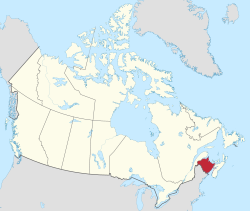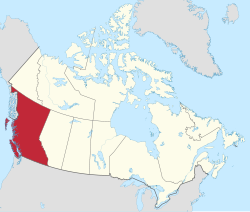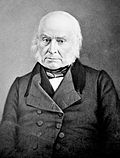Svetlana Velmar-Janković
| Main | Topics and categories | Tasks and projects |
The Politics portal
Politics (from Ancient Greek πολιτικά (politiká) 'affairs of the cities') is the set of activities that are associated with making decisions in groups, or other forms of power relations among individuals, such as the distribution of status or resources. The branch of social science that studies politics and government is referred to as political science.
Politics may be used positively in the context of a "political solution" which is compromising and non-violent, or descriptively as "the art or science of government", but the word often also carries a negative connotation. The concept has been defined in various ways, and different approaches have fundamentally differing views on whether it should be used extensively or in a limited way, empirically or normatively, and on whether conflict or co-operation is more essential to it.
A variety of methods are deployed in politics, which include promoting one's own political views among people, negotiation with other political subjects, making laws, and exercising internal and external force, including warfare against adversaries. Politics is exercised on a wide range of social levels, from clans and tribes of traditional societies, through modern local governments, companies and institutions up to sovereign states, to the international level.
In modern nation states, people often form political parties to represent their ideas. Members of a party often agree to take the same position on many issues and agree to support the same changes to law and the same leaders. An election is usually a competition between different parties.
A political system is a framework which defines acceptable political methods within a society. The history of political thought can be traced back to early antiquity, with seminal works such as Plato's Republic, Aristotle's Politics, Confucius's political manuscripts and Chanakya's Arthashastra. (Full article...)
Selected article
The Power of Nightmares is a BBC documentary film series, written and produced by Adam Curtis. The series consists of three one-hour films, consisting mostly of a montage of archive footage with Curtis's narration, which were first broadcast in the United Kingdom in late 2004 and have been subsequently aired in multiple countries and shown in several film festivals, including the 2005 Cannes Film Festival. The films compare the rise of the American Neo-Conservative movement and the radical Islamist movement, making comparisons on their origins and noting strong similarities between the two. More controversially, it argues that the threat of radical Islamism as a massive, sinister organised force of destruction, specifically in the form of al-Qaeda, is in fact a myth perpetrated by politicians in many countries—and particularly American Neo-Conservatives—in an attempt to unite and inspire their people following the failure of earlier, more utopian ideologies. The Power of Nightmares has been praised by film critics in both Britain and the United States. Its message and content have also been the subject of various critiques and criticisms from conservatives and progressives.
Featured picture

George John Douglas Campbell, 8th Duke of Argyll KG, KT, PC, FRS, FRSE (30 April 1823 – 24 April 1900), styled Marquess of Lorne until 1847, was a Scottish peer, Liberal politician as well as a writer on science, religion, and the politics of the 19th century.
Selected quote
Selected biography
Luís Alves de Lima e Silva, Duke of Caxias (pronounced [kaˈʃi.ɐs]; 25 August 1803 – 7 May 1880), nicknamed "The Peacemaker" and "The Iron Duke", was an army officer, politician and monarchist of the Empire of Brazil. Like his father and uncles, Caxias pursued a military career. In 1823 he fought as a young officer in the Brazilian War for Independence against Portugal, then spent three years in Brazil's southernmost province, Cisplatina, as the government unsuccessfully resisted that province's secession in the Cisplatine War. Though his own father and uncles renounced Emperor Dom Pedro I during the protests of 1831, Caxias remained loyal. Pedro I abdicated in favor of his young son Dom Pedro II, whom Caxias instructed in swordsmanship and horsemanship and eventually befriended.
Did you know (auto-generated) -

- ... that Denpasar mayor I Gusti Ngurah Jaya Negara became active in politics after he was laid off from a bank due to the Asian financial crisis?
- ... that the 2009 book Where Heaven and Earth Meet introduced the term "Sacred Esplanade" as a politically neutral term for the religious site in Jerusalem known as al-Haram al-Sharif or the Temple Mount?
- ... that The Use and Abuse of History: Or How the Past Is Taught explores how school textbooks across the world distort history to serve political interests?
- ... that the Chinese Red Army housed its political directorate in a Catholic church in 1935?
- ... that after its merger with India, the last raja of Jubbal State joined the Indian Foreign Service?
- ... that although he was a former Indonesian prime minister, Soekiman Wirjosandjojo was not arrested during a political purge as he was considered a non-threat?
More did you know...
- ...that the phrase "lipstick on a pig" may have its origins in the 18th-century expression "A hog in armour is still but a hog"?
- ...that the Pirate Party of the United States was formed after a 2006 raid by the Swedish police on the servers of The Pirate Bay, a popular file sharing website?
- ...that Andrey Kirillovich Razumovsky, at the time Ambassador of the Russian Empire to the Austrian Empire, commissioned three string quartets from Beethoven?
- ...that four member states of the European Union have de jure opt-outs and do not participate fully in all common policies?
- ...that Cornelius, Oregon is named after pioneer Thomas R. Cornelius, who served in both the Territorial and State legislatures?
- ...that the Society of the Friends of Peasants had significant influence on the Danish Constitution of 1849?
- ...that Caedwalla of Wessex conquered southeast England during his brief 7th century reign?
- ...that tiao-kuai is the quasi-federal administration system in China?
In this month
- April 1, 1979 – Iran's government becomes an Islamic Republic by a 98% vote, overthrowing the Shah officially.
- April 9, 1948 – the period known as La Violencia begins with the assassination of Colombian Liberal Party leader Jorge Eliécer Gaitán. For the next ten years Liberals, Communists and Conservatives would fight each other in the conflict.
- April 9, 2003 – Government of Saddam Hussein overthrown by American forces in Iraq.
- April 19, 2006 – Han Myung-sook becomes South Korea's first female Prime Minister.
- April 24, 2005 – Presidential elections in Togo return Faure Gnassingbe to power two months after he was installed by the military following the death of his father, Gnassingbé Eyadéma.
- April 28, 1937 – Saddam Hussein, the President of Iraq was born.
- April 30, 1945 – Adolf Hitler and his wife Eva Braun, commit suicide as the Red Army approached the Führerbunker in Berlin. Karl Dönitz succeeds Hitler as President of Germany; Joseph Goebbels succeeds Hitler as Chancellor of Germany.
News and Current events
- August 11: 4 local government areas in New South Wales, Australia locked down after COVID-19 case
- August 11: Australia: AstraZeneca vaccine access expanded by Victorian government
- August 1: Australia: Victorian lockdown lifted
- July 29: Tunisia's president dismisses prime minister, suspends parliament
- July 25: Australia: Wikinews interviews Reg Kidd, mayor of the City of Orange, about COVID-19 lockdown and local government
- July 23: South Australia enters week-long lockdown to contain COVID-19 Delta variant spread
- July 21: Technological University Dublin senior lecturer Dr Lorcan Sirr speaks to Wikinews on housing market in Ireland
- July 21: Three rural councils in New South Wales, Australia enter 7-day lockdown
- July 21: Australia: Victoria lockdown extended by a week with 85 active cases recorded
- July 15: California governor signs new state budget, eligible Californians to get stimulus payments
Topics and categories
General images
Related portals
Associated Wikimedia
The following Wikimedia Foundation sister projects provide more on this subject:
-
 Commons
Commons
Free media repository -
 Wikibooks
Wikibooks
Free textbooks and manuals -
 Wikidata
Wikidata
Free knowledge base -
 Wikinews
Wikinews
Free-content news -
 Wikiquote
Wikiquote
Collection of quotations -
 Wikisource
Wikisource
Free-content library -
 Wikiversity
Wikiversity
Free learning tools -
 Wiktionary
Wiktionary
Dictionary and thesaurus

 Read
Read
 AUTHORPÆDIA is hosted by Authorpædia Foundation, Inc. a U.S. non-profit organization.
AUTHORPÆDIA is hosted by Authorpædia Foundation, Inc. a U.S. non-profit organization.

















































